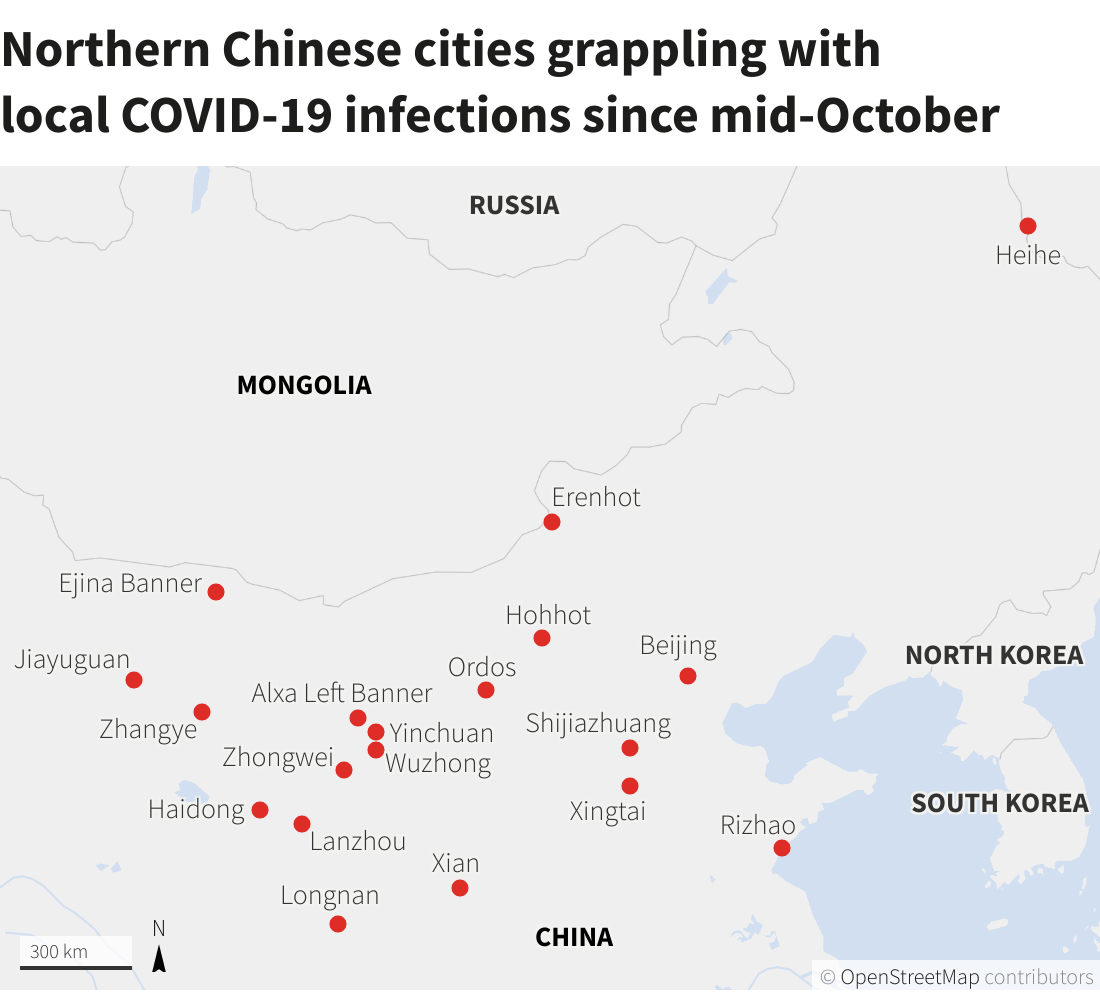China will not give up on its zero-tolerance policy towards local COVID-19 cases any time soon, some experts said, as the policy has allowed it to quickly quell local outbreaks, while the virus continues to spread outside its borders.
To stop local cases from turning into wider outbreaks, China has developed and continually refined its COVID-fighting arsenal — including mass testing, targeted lockdowns and travel restrictions – even when those anti-COVID measures occasionally disrupted local economies.
“How long it will last depends on the virus-control situation worldwide.”
In a major outbreak in July-August, China counted a total of over 1,200 local symptomatic infections. In the latest flare-up, mostly in northern China, some 538 local cases were reported between Oct. 17 and Nov. 1.
- Volta Regional Minister woos investors for partnerships
- Unemployed man gets 14 years for stealing plantain and cassava
Despite the lower caseload, the geographical spread of the infections has put constraints on China’s leisure and tourism sectors.
Many cities with infections have also closed indoor entertainment and cultural venues. A flurry of marathons, theatrical performances and concerts have been delayed or cancelled.
In contrast, some Asia-Pacific countries are starting to open selectively to fully vaccinated international travellers as they seek to secure a more normal footing for their economies and societies.

ANOTHER YEAR?
“Officials seem to believe that giving up on the zero-tolerance approach would just replace one set of problems with another,” wrote Cui.
“Zero tolerance costs a lot indeed, but letting the virus spread costs more,” Zhong said.
Such back-and-forth in policy costs more, and has a greater impact on the public, he warned.
